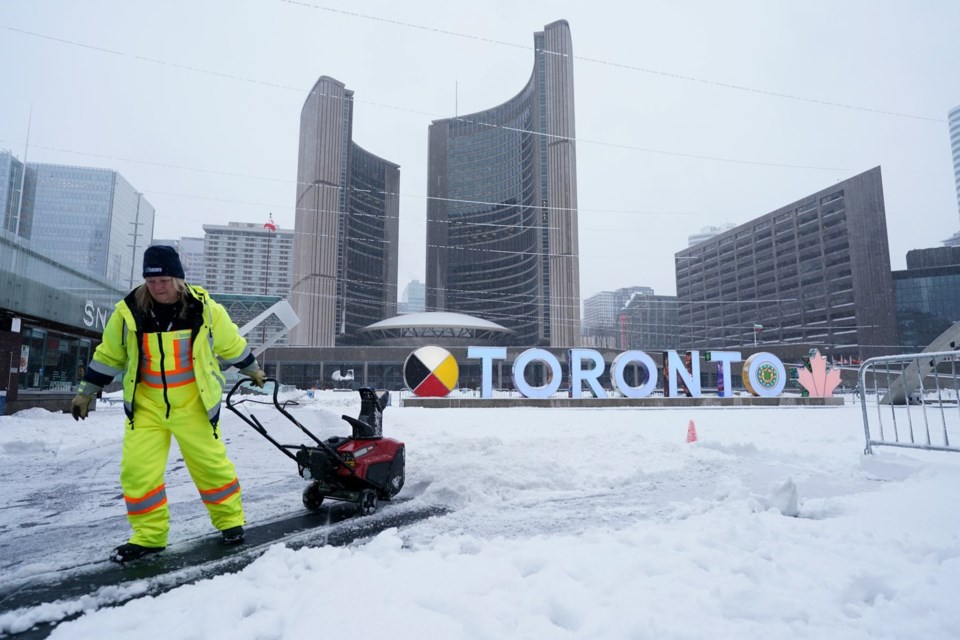TORONTO — A housing advocate is calling the City of Toronto's winter plan to support homeless people "disappointing," saying it doesn't go far enough for thousands who are currently on the streets and fails to address the city's worsening housing crisis.
City officials announced at a press conference Tuesday that the city will be adding 530 spaces to existing shelters, plus 218 spaces in four warming centres across the city when temperatures reach -5 C or when the federal environment agency issues a winter weather warning.
The city also expects to open 286 new social housing units throughout the winter season.
Officials acknowledged that the extra spots won't be enough to meet rising demand.
The city has continuously failed to keep up with the soaring need for shelter, said Greg Cook, an outreach worker at Sanctuary Toronto who sits on the Shelter and Housing Justice Network steering committee.
"It's pretty disappointing. I'm really concerned for the hundreds and hundreds of people who can't access shelter right now who are stuck outside," Cook said in an interview, noting the system is over-capacity.
"Their plan is frankly out of touch. It's not responding to what's needed."
The city says more than half of the people using shelters are refugee claimants, so it is also planning to open 200 new spaces in refugee houses, 100 of which will open this winter.
Cook said those spaces will help, but the city needs to do more to address the rising housing costs that are causing people to enter the shelter system each month.
"The difference now is that housing is so exponentially more expensive than it has been previously," he said.
Policies that neglect tenant rights, luxury developments that take over low-cost housing and the gentrification of low-income neighbourhoods are all problems the city needs to address, said Cook.
"These are the real issues that are driving this crisis."
At a morning press conference announcing the plan, Coun. Alejandra Bravo acknowledged that the city needs to improve the capacity of a system that currently supports 12,200 people.
"We know more needs to be done. No one is saying, I think, here, that the problem will be solved," Bravo said, adding the city is working on devoting additional resources to the issue.
The city acknowledged in a press release Tuesday that its seasonal plans cannot meet the rising demands for shelter, as more than 200 people are currently being turned away from shelters every night.
Gord Tanner, general manager of the city's shelter and support services, said it can be complicated to predict future shelter demand, but officials know that many households are struggling to afford rent in Toronto.
"We have to continue to do as much as we can to prevent those folks from falling into homelessness and build the best response that we can," Tanner said.
He noted the city is currently implementing a 10-year strategy to build 20 permanent shelters, six of which are in their final planning stages.
Cook said the current level of demand is alarming, and in the short term, he would like to see a higher number of warming centres opened up that are safe and accessible for homeless people.
He added that the city also needs to do a better job of planning for extreme weather events, which disproportionately affect the homeless population.
This report by The Canadian Press was first published Oct. 22, 2024.
Rianna Lim, The Canadian Press


